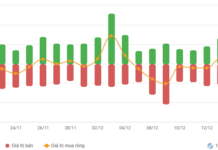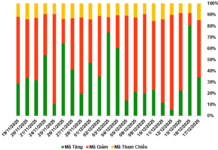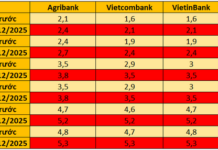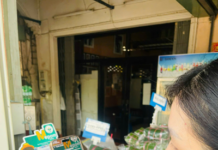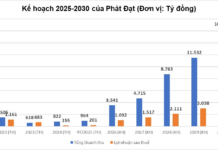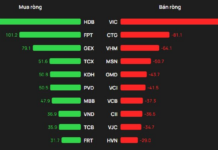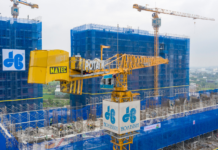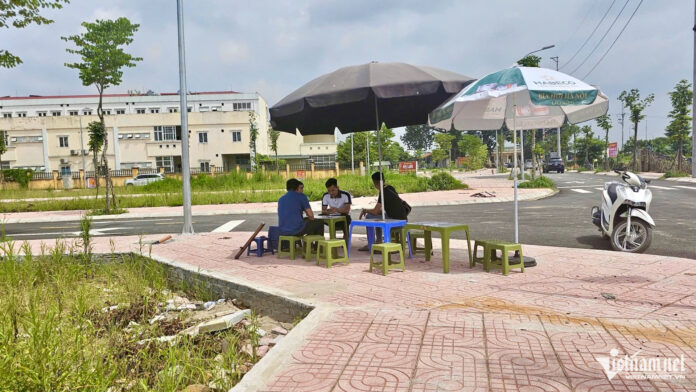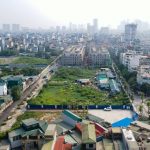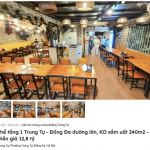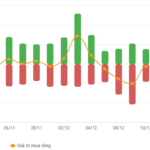Familiar Faces at Auctions
The leader of a real estate company in Hanoi shared with us that he knows of groups who regularly attend auctions and then resell the properties for a quick profit.
“These are familiar faces at many auctions. These groups not only participate in auctions in Hanoi but also go to other provinces like Hung Yen, Hai Duong, and Ha Nam,” he said. “At these auctions, they will bid on multiple lots and then resell them immediately.”
With a low deposit of just over 100-200 million VND per lot, if they win two lots and sell one with a premium of 200-300 million VND, they still make a profit. The opportunity cost is relatively good, and the risk is acceptable. Losing the deposit isn’t a big deal, but winning can bring significant gains,” he analyzed.
Hanoi’s auction fever: Bidding wars drive up land prices. Chart: Hong Khanh
Mr. Pham Duc Toan, CEO of EZ Vietnam Real Estate Investment and Development Joint Stock Company (EZ Property), observed that after auctions, these lots are openly resold at premiums of up to hundreds of millions of VND. This practice risks turning auctioned land into a new commodity in the real estate market and giving rise to professional auction bidders who profit from the price differences.
Mr. Toan also noted that comparing the auction prices in Hanoi’s outlying districts with the market prices in the same areas reveals that the winning bids of over 100 million VND per square meter are not reflective of the land’s true value.
For example, in Thanh Oai, the highest auction price reached 100.5 million VND per square meter, while in the nearby Thanh Ha urban area, which has better infrastructure and is closer to the center, prices range between 60 and 80 million VND per square meter.
Similarly, in Hoai Duc, where a plot of land recently sold at an auction for 133.3 million VND per square meter, the An Khanh urban area (in Hoai Duc) offers houses with land at prices ranging from 80 to 90 million VND per square meter.
Mr. Toan questioned the reasons behind the sudden high prices of these isolated plots of land and expressed concern that land prices in the surrounding areas might follow suit. This could create a new price benchmark, further heating up Hanoi’s real estate market.
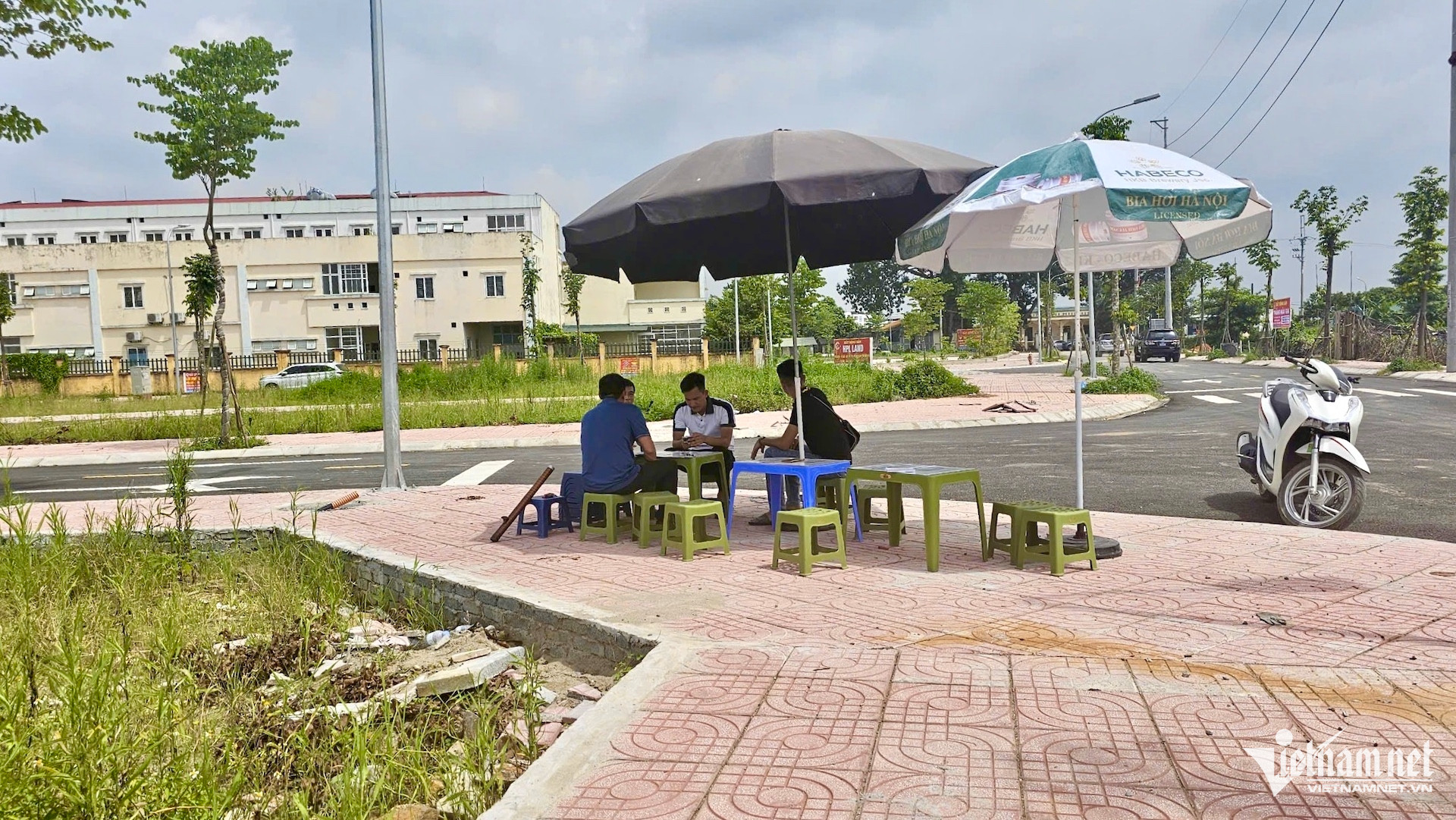
These plots of land are openly resold at premiums of up to hundreds of millions of VND immediately after the auctions. Photo: Hong Khanh |
Manipulating Auction Prices
Dr. Tran Xuan Luong, Vice President of the Institute for Real Estate Market Research and Evaluation in Vietnam, pointed out that land auctions have become a prominent issue as land prices are often pushed far above their actual value.
According to Dr. Luong, there are multiple reasons for this situation, and various tactics are employed behind the scenes of these auctions.
“One of these tactics involves a group of speculators from elsewhere. Their strategy is to bid up the prices and then quickly resell the land at a substantial premium. They have no intention of developing the land but are only interested in short-term gains, market disruption, and creating difficulties for those with genuine housing needs,” Dr. Luong explained.
Looking back at the recent land auction in Thanh Oai (on August 10), out of 68 plots of land in Ba Lane, Thanh Than village, that were up for auction, only two winners were local residents with household registration in Thanh Oai, and none were from Thanh Cao village. Many of the winning bidders came from other provinces, such as Bac Ninh, Bac Giang, Hai Duong, and Phu Tho.
Dr. Luong also mentioned another tactic: exaggerating information based on changing laws, such as the ban on land subdivision, to create a sense of scarcity and artificial demand, thereby driving up land prices beyond their true value.
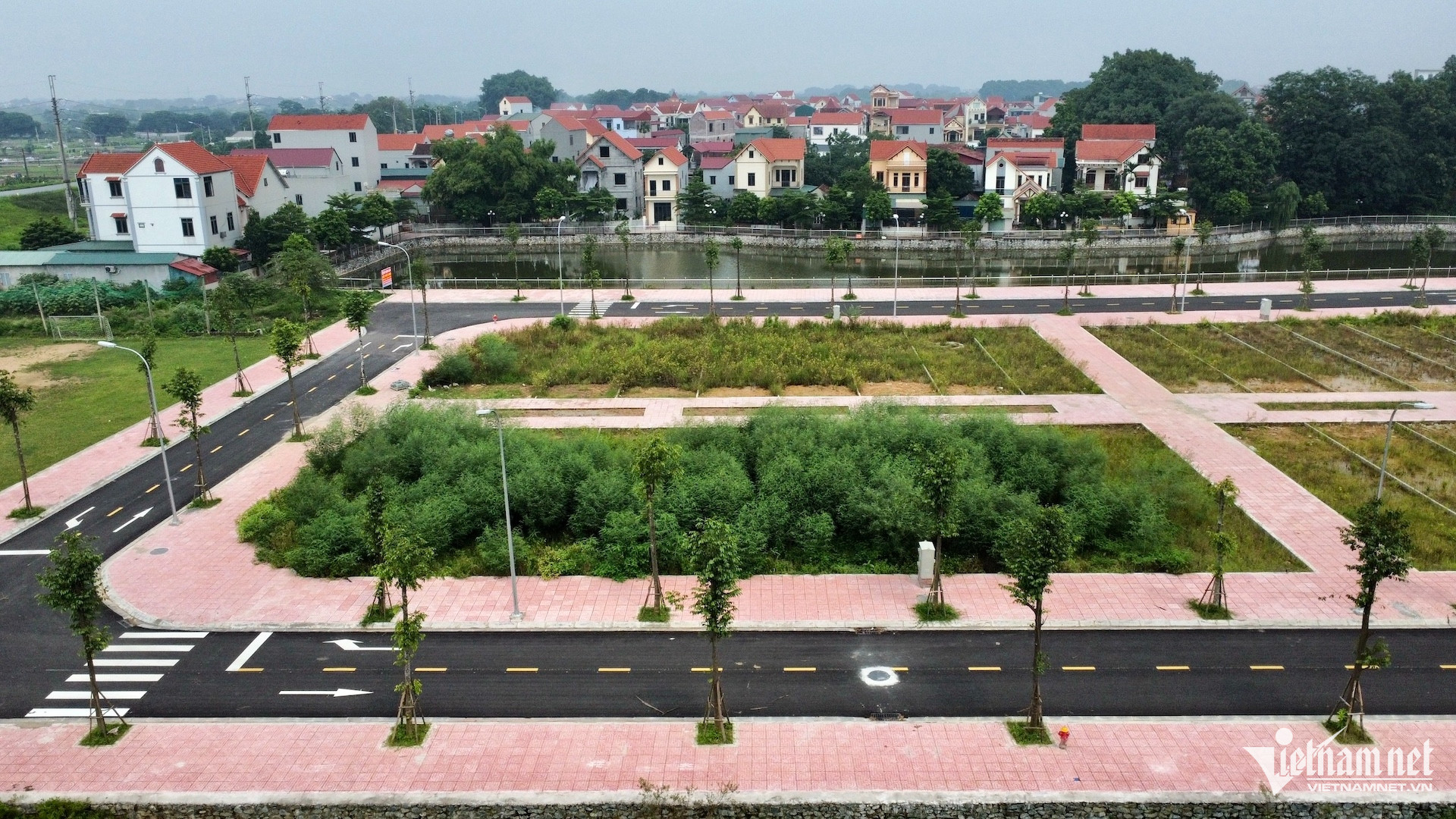
The purpose of these auctions is to help people with housing needs to buy land, but in reality, the high prices make it very difficult for those who want to build homes. Photo: Hong Khanh |
Additionally, there have been instances of bidders offering extremely high prices for certain plots of land and then forfeiting their deposits to create a price benchmark. This allows them to buy and sell multiple plots of land they won at lower prices or to sell other plots they had previously purchased in the area, thus profiting from the inflated prices.
Many experts believe that to curb the manipulation of auction prices, it is necessary to increase the deposit amount and hold bidders more accountable.
Dr. Luong suggested that comprehensive management measures, policy reforms, and synchronized planning are needed to ensure a plentiful supply of housing. He also recommended restricting land auctions and promptly implementing tax policies. For example, winners of land auctions should commit to constructing houses within a certain period, such as one to two years, before being allowed to transfer the land. If they choose to transfer the land within this period, they should be subject to high taxes, similar to practices in other countries, to maintain market stability and prevent speculation and money laundering.
Mr. Pham Duc Toan shared that even businesses developing projects feel confused when auction land prices show abnormal signs of being inflated beyond their actual value.
“When a plot of land suddenly increases multiple times the average price after an auction, it can make it challenging for reputable real estate companies to sell their products at competitive prices. It may also create difficulties for the state in land retrieval due to public backlash over the significant price discrepancy,” Mr. Toan added.
|
On August 21, in response to cases where winning bids were several times higher than the starting prices, the Prime Minister issued a directive instructing relevant agencies to promptly rectify land use right auctions. The Prime Minister requested the Minister of Natural Resources and Environment to coordinate with the Ministers of Justice, Finance, and Construction and the Chairpeople of provincial and municipal People’s Committees to promptly inspect and review land use right auction activities, especially those with abnormal signs. The directive also emphasized the need for transparent and lawful land use right auctions, timely detection and strict handling of violations, and prevention of land use right auctions from becoming a means of profiteering and market disruption. Meanwhile, Hanoi’s Department of Natural Resources and Environment is currently conducting an inspection to comprehensively evaluate the city’s past land auctions. |
By Hong Khanh
The most extensive bribery case ever in Thanh Hoa: Numerous suspects prosecuted for “Giving and Receiving Bribes”
The Provincial Security Investigation Agency (PSIA) of Thanh Hoa province announced on January 31st that it has made the decision to initiate a prosecution against 23 individuals in connection with the offenses of “Accepting bribes” and “Giving bribes” as stipulated in Article 354(3) and Article 364(2) of the Criminal Code.
Astonishingly high price for old and dilapidated apartment buildings reaching nearly 200 million VND/m2, rivaling the most luxurious condominiums in Hanoi
Old collective apartments with prices starting from 100 million VND/m2 are usually the first-floor units that can be used for commercial purposes, while the upper-floor units are priced at 60-80 million VND/m2 for residential purposes.

